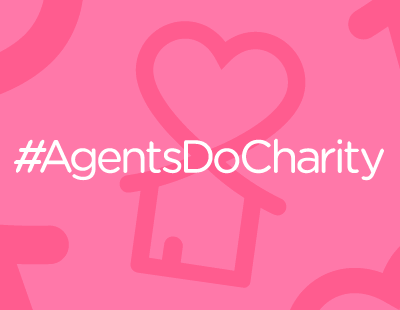
The first ever electronic e-signature exchange of contracts for a residential property transaction in the UK has been completed this month, it has been revealed.
The exchange happened on Thursday April 6 at 15.59pm with the conveyancers and their clients at the offices of Convey Law using the Bonafidee e-signature facility to sign the contract for both the sale and purchase element of the transaction.
The system allows both lawyers to upload the agreed contract, which is then sent to the seller and the purchaser clients for them to sign electronically. The system provides confirmation that the document has been read and signed with a code taking the place of a signature.
Armed with both parts of the contract, and having acted on both sides of the transaction, Convey Law’s conveyancers exchanged contracts under normal Law Society rules.
“Agreeing contract terms is often undertaken over the telephone by conveyancers and, in many circumstances, the document that you receive from the conveyancer on the other side of a transaction can look very different from the contract that you have sent out” says Convey Law legal director Gareth Richards. But he says the system used in this first transaction allows for an agreed form of contract to be uploaded and then sent to the clients for them to sign.
“The e-signature requires confirmation that the client is who they say they are and hence proof of identity verification is always important as a prefix to this procedure.
This is definitely a significant step in the right direction in relation to e-conveyancing and we are delighted to have been a part” he says.
Lloyd Davies, operations director for the Conveyancing Association and a managing director at Convey Law, says effective proof of identity and electronic signatures are a key component part of bringing conveyancing into the 21st century.
“Using electronic signatures to exchange contracts was not difficult, as witnesses are not required for this part of the conveyancing process. It is not difficult to see how electronic e-signatures can replace the need for deeds, which currently need to be witnessed by another individual once the appropriate proof of identity and verification checks and balances are in place” he adds.













.png)


.jpg)
.jpg)





%20-%20IMAGE%20Client%20Accounting%20%E2%80%93%20what%20are%20your%20options.jpg)


.png)
.png)
.png)
%20(002).png)






%20(002).jpg)



.png)




Join the conversation
Jump to latest comment and add your reply
This appears to be a positive step forward, but there has been a number of negative comments posted in the Law Society Gazette article. Most quoting possible fraud as a reason not to embrace this process. However, there was one positive comment:
“In response to the cynics, the transaction is simplified and accelerated by negating the need for the buyer and seller to be sent paper documents to sign and return. And secondly, this is an anti-fraud solution as the signatory(ies) have to complete a robust id verification check and there’s a tamper evident audit trail recording every aspect of the checks and the transaction.”
Amongst the negatives was:
“I have never come remotely close to having an unsigned contract delay an exchange, but I know other firms have, as they leave things to the last minute.
So if the 'last minute' brigade are helped by what this article describes, fine, but the quality of their service might need to be looked at as a whole.
In terms of e-conveyancing in general, it's a total red herring. The focus needs to be on the poor quality of the human beings so frequently offering conveyancing at the moment. GIve them bells and whistles IT, and you still have a poor quality conveyancer, now with bells and whistles IT.”
Would be interesting to hear what estate agents think?
Is a good conveyancer with a poor system still a good conveyancer? Is a good system, run by a poor conveyancer beneficial?
The last two paragraphs, as quoted are spot-on.
The quality of the humans involved, or more specifically their attitudes and total lack of empathy with their clients concerns should be the first issue resolved.
It is true that advancement in technology is a great thing and this will surely only reduce time, and hassle.
However, until such point as the service levels improve an event like this will widely be met with 'oh joy, yet another way for the laziness and idiocy to become more widespread.
When it really should be 'rejoice, for the process just got more efficient.'
I'm sceptical. Every programme has a 'back-door'. The amount of corporate enterprise that gets hacked, not only Banks, continues to give me concern and I do not believe any system is 100% security safe. I would not bet my house on it!
You're right Lenny, but most security breaches are still initiated by human factors - written password copies etc.
The attacks that make the headlines tend o be looking for volume information that can be used for fraud in other areas. IoT in particular is a problem that can only compound that risk (this is my favourite - http://www.zdnet.com/article/target-hackers-hit-air-conditioning-firm-first-as-a-way-in/).
there is no such thing as a 100% risk free system, digital or otherwise. Electronic signature especially with two factor authorisation will be a tremendous tool to help and industry that suffers from appalling and usually inexplicable delays.
Please login to comment